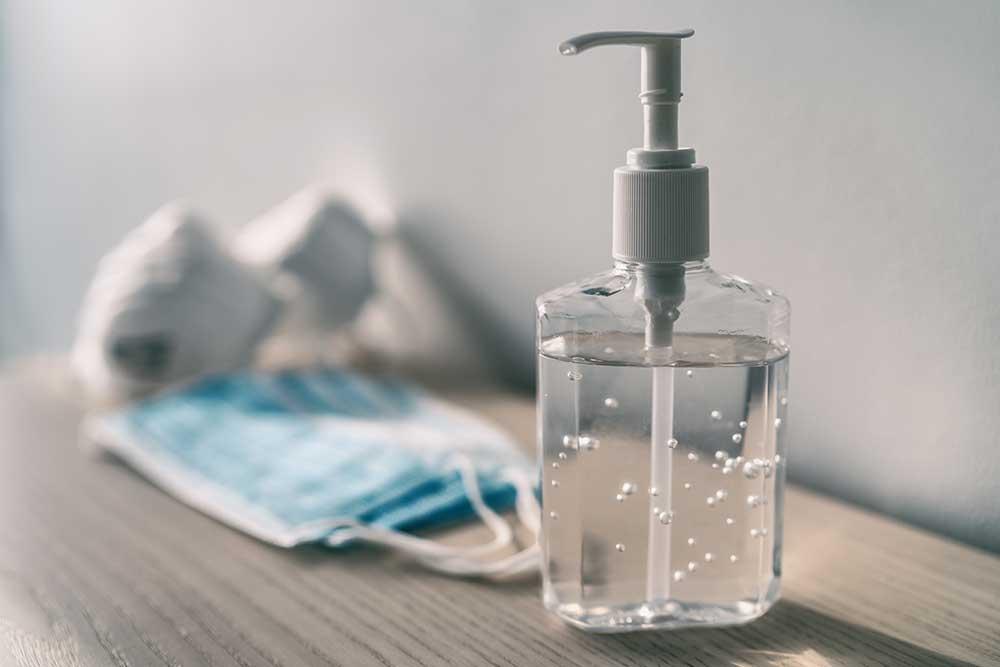Maximizing Wellness During a Pandemic

Written by Dr. Ruby Rose, MD.
Many scientists have predicted this day would come, but most of us couldn’t envision a true pandemic becoming a reality.
As we all scramble to make up for our failure to properly prepare for this global crisis, we are adjusting on the fly and discovering our new norm in the face of this global threat.
While we all reset our expectations, questions arise as to how to stay healthy, both physically and emotionally. The worry and fear alone can create massive amounts of stress, and in turn, take a toll on health and wellbeing.
To combat these negative forces, each one of us can take certain measures to prepare the mind and body for potential illness, and expedite recovery if you do, in fact, become ill.
These measures, listed below, are to supplement current recommendations regarding COVID-19. As most of us have found, the data surrounding the behavior of this virus is not 100% concrete. Some of these measures are supported by evidence, while some are extrapolated from similar viruses.
It is our hope that this information will give you a simplified guide to help protect you and your family, and perhaps give you some peace of mind.
The Role of Inflammation
The body’s ability to mount an inflammatory response to any type of pathogen or injury is necessary for survival.
This inflammatory cascade allows the body to release immune cells and hormones that prepare the body to fight a pathogen such as a virus, eliminate it and then repair the body.
In most healthy adults, this process takes about a week during which your body develops fever, fatigue, increased mucus production, and possibly diarrhea.
See also: Heart Disease: 8 Ways to Reduce Your Risk.
In some cases, the immune response is dysregulated resulting in inappropriate inflammation leading to pneumonia, respiratory failure and multi-organ failure.
No study has explained why some individuals develop this over others. It is with this in mind that keeping our bodies healthy and balanced is so crucial so that it can mount a normal immune response.
Basic Known/Common Sense recommendations:
1. Frequent hand washing – 20 seconds of soapy running water, especially prior to eating, rubbing your eyes or touching your face.
2. Social distancing – keep a distance of >6 ft if you must go out. This virus is airborne, so imagine sitting near someone who smokes; if the smell bothers you then you’re in the airborne pathway.
Try covering your mouth (cloth, bandana, mask if already have one) and cough/sneeze in your elbow. Stay home as much as possible.
3. Self-quarantine at the onset of feeling ill. Do not leave home. Ask friends to bring you what you need. Order groceries/food online.
The early symptoms are similar to the influenza and include fever, dry cough, mild sore throat, body aches, loss of taste and/or smell, diarrhea.
Measures to Support your Immune System
1. Restorative Sleep – Many studies have shown the detrimental effects of sleep deprivation on the immune system.
Sleep loss is associated with chronic inflammatory diseases such as heart disease, autoimmune disease, depression and anxiety to name just a few.
Despite our uprooted schedules, setting a regular wake and bedtime routine is essential to adequate sleep. It is recommended to get at least 7 hours of sleep regularly. Limit caffeine intake and avoid screens before bedtime. Sleep in a clean room with a hepa filter.
- Consider natural sleep aids such as Valerian root, lavender, chamomile, passionflower extract, lemon balm, hops, skullcap, Kava Kava.These all come in supplement form and are generally safe. (Anyone who is pregnant or on blood thinners should consult with your provider).
- Melatonin is used for circadian irregularities (i.e ER docs and Night shift workers). It has also been linked to having a role in reducing oxidative lung injury during viral infections.L-tryptophan and 5-HTP are melatonin precursors and can be found as supplements.
- Magnesium has been shown to help with sleep and restless leg
syndrome.

2. Healthy Diet – Consider a simple mostly plant based diet such as the Anti-inflammatory diet or Mediterranean diet. See links below.
These diets will help you avoid processed foods and guide you towards more nutritious foods that include whole grains, vegetables and fruit. Eat through the rainbow. By doing this, you will be supplementing your body with the necessary vitamins and minerals for a healthy immune system.
3. Exercise – The benefits of exercise are diverse. Exercise trains your body to repair itself. Exercise also reduces anxiety and depression.
With the closure of gyms and studios, this may feel like a bigger challenge. But now you can combine the benefits of nature with exercise.
Studies have shown that moderate intensity walking for 30 minutes/day reduces blood pressure, cholesterol, blood sugar while improving memory and mood. There is no pill out there that can claim that!
4. Human Connection – Everyone is on social media now and social distancing or isolating themselves completely.
There are still ways you can get connected with friends and family. Zoom is an app that video conferences multiple people at a time and is free.
Many more platforms will become available. Consider seeking out a virtual yoga class, church service, or craft session. Plan a virtual dinner party with friends. We are all in this together and you are not alone!
5. Supplements – There are many questions regarding the safety of supplements and over-the-counter medications in the setting of this virus.
As of today, there is no evidence-based clinical trials for the prevention or treatment of COVID-19. The following list of supplements and herbs are recommended to help mitigate the effects of stress, anxiety and respire balance.
– As of today, there is no evidence that shows NSAIDs are harmful but it is recommended for now to treat fever with Tylenol initially and if fever persists, ibuprofen is recommended.
– Zinc: Shown to inhibit virus entry into cells and used preventatively. Daily doses of 15 – 30 mg lozenges is recommended.
– Vitamin C: Shown to reduce frequency, duration and severity of respiratory infections. Daily doses of 500 – 3000mg is recommended.
– L-Theanine: amino acid that is found in green and black teat that promotes relaxation without drowsiness, improves concentration and does not cause dependence or tolerance. It was also found to help reduce blood pressure, a common side effect of anxiety. Daily doses of 200 – 600mg is recommended.
– Passionflower Extract: is commonly used to treat anxiety and insomnia. Evening doses of 500 – 2000 mg is recommended.
– Lavender Extract: Several studies have shown benefit for generalized anxiety at doses of 80-160mg daily.
6. Stress Reduction – It is expected that many people will develop some degree of chronic stress which has been linked to suppression of the immune system.
Use the time in quarantine to learn a method for reducing stress such as breathing exercises (4-7-8 Breath), meditation (guided imagery, progressive muscle relaxation), mindfulness (practicing gratitude, journaling), exercise, aromatherapy.
Adaptogens: Herbs that improve the body’s response to stress by restoring the intricate negative feedback of cortisol thus improving circadian rhythmicity.
These herbs help your body adapt while delaying the exhaustion phase. The following is just a short list of common adaptogenic herbs that may help during this pandemic and not be harmful.
– Siberian Ginseng: Improves immune system endurance and energy in patients under chronic stress. Daily doses of powdered root capsules is 2g -3g.
– Rhodiola: This energizing and uplifting herb has been effective in reducing mental and physical fatigue under stressful conditions, improves mood, mental clarity, and endurance and is used to help patients with mild to moderate depression and emotional instability.
In some patients it can make anxiety worse. Daily doses of 100 -300mg 2-3 times/day is recommended.
– Ashwaghanda: this herb is considered the calming adaptogen that improves anxiety and nervous exhaustion. Daily doses of 500mg 1-2 times per day is recommended.
– Holy Basil: helps with anxiety and stress and improves mental clarity. Daily doses of 500mg twice a day is recommended. Also known as Tulsi and comes in a tea.
Links:
Anti-inflammatory Diet
In Home 20 minute Exercise
Guided Imagery
Meditation in 5 minutes
References:
1) LiseAlschulerND, et al. Integrative Considerations During the COVID-19 Pandemic. https://doi.org/10.1016/j.explore.2020.03.007. 2)
2) Rogers PJ, Smith JE, Heatherley SV, Pleydell-Pearce CW. Time for tea: mood, blood pressure and cognitive performance effects of caffeine and theanine administered alone and together. Psychopharmacology (Berl) 2008;195:569– 577.
3) R Perry, et al. Is Lavender an Anxiolytic Drug? A Systematic Review of Randomized Clinical Trials. Phytomedicine: 19 (8-9), 825-35. 2012 Jun 15.
4) Tulsi – Ocimum sanctum: A herb for all reasons, J Ayurveda Integr Med. 2014 Oct-Dec; 5(4): 251–259.
5) Schulz, V. Et al. 2004. Rational Phytotherapy. A Reference Guide for Physicians and Pharmacists. Springer.
Other Articles by Dr. Ruby Rose, MD –
Preparing for Flu Season.
GERD (Heartburn) – Pain in the Upper Gut
———————————————————————————————————————-

Dr. Ruby Rose, MD, is board certified in emergency medicine. Originally from New York City, Dr. Rose graduated from Vassar College in New York before obtaining her medical degree from Tufts University School of Medicine in Boston, Massachusetts. She completed her emergency medicine residency at University of Massachusetts. Dr. Rose has a passion for alternative care and recently graduated from the University of Arizona Integrative Medicine Fellowship in Tucson, Arizona. After relocating to Texas with her family, Dr. Rose worked in St. David’s Healthcare System where she served in several leadership positions. In her spare time, she enjoys watching her kids play various sports and riding her horse in the Texas Hill Country.









